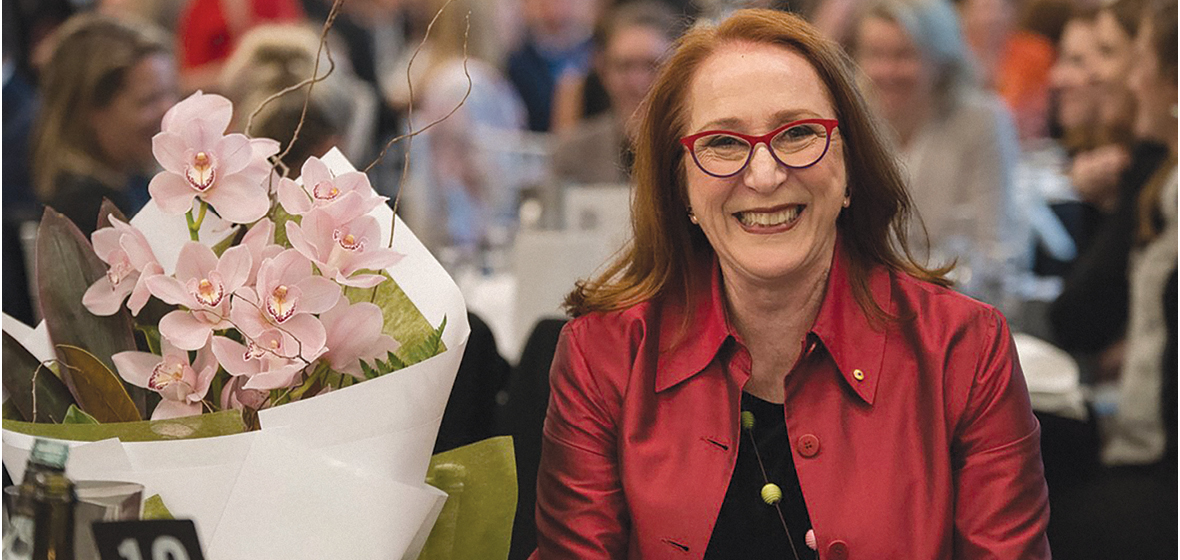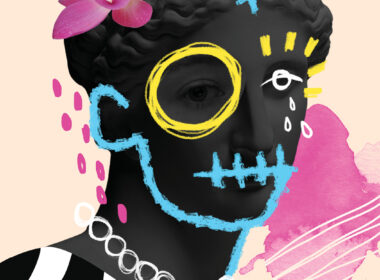The President of the Australian Human Rights Commission, Rosalind Croucher, completes her seven-year term next month. Ahead of a landmark conference this week, she reflects on the changing attitudes of Australians in understanding, and advocating for, their rights.
Across your seven-year term, have you seen greater understanding (or interest) in Australians about their human rights?
I think as Australians we are a rights-minded people in a broad sense. Our famous commitment to the ‘fair go’ is evidence of that. Over the course of my term there’s been a lot of social, political and economic turmoil as well as technological innovation which have resulted in people and communities across Australia being more focused on their rights. The Voice referendum, the same-sex marriage plebiscite, the COVID pandemic, Australia’s domestic violence, youth justice, immigration and housing crises, the Disability Royal Commission, concerns about racism and freedom of speech stemming from the impact of the war in Gaza, discrimination against transgender people, elder abuse, religious discrimination, concerns about privacy and surveillance – these are all examples of rights coming to the forefront of current events. And while it may not always be evident at first glance, critical social issues almost always come down to how people experience a range of human rights. So I feel that we as Australians certainly have a broad interest in rights, but especially so when some of us feel that our rights – which we often take for granted – are suddenly denied us. It’s like suddenly not being able to breathe. And there’s certainly been a lot of breathlessness in Australia over the last seven years.
Do you feel there is now greater agreement across Parliament, government and the community about what we can do collectively to better promote and protect human rights?
Australia has changed significantly over the last 25 years in terms of our population, our economy, our culture and the impact of technology. However, the laws, policies and practices which make up Australia’s human rights framework have not kept pace. This means our country is not protecting and promoting human rights as well as we could. Both the AHRC and Federal Parliamentary Joint Committee on Human Rights (PJCHR) have recently undertaken wide-ranging community consultations about reforming our human rights framework so it can be fit for purpose in the 21st century. These consultations have shown there is a lot of support in many communities and sectors – including the government sector – for a revitalisation of Australia’s human rights framework, including the introduction of an Australian Human Rights Act as well reforming Australia’s Race, Sex, Disability and Age Discrimination Acts. The trajectory of these reforms will be the focus of the Commission’s upcoming Free + Equal Human Rights Conference and we look forward to discussing how to pave the way for the Federal Government to get on board and embrace these opportunities to ensure that human rights are front of mind, for all of us.
What is the current state of play regarding a Human Rights Act?
A lot of people don’t realise that Australia is the only liberal democracy in the world without a charter or bill of rights, and there are a range of historical reasons for this. There’s been advocacy around an Australian Human Rights Act for decades – it was supposed to be a central institutional pillar when the Australian Humna Rights Commission was originally established. However we feel right now is the closest we’ve gotten to making it a reality. Not only has the Commission spent five years developing a model that has broad-based support from all relevant sectors and communities, but the Federal Government instructed the Federal Parliamentary Joint Committee on Human Rights last year to undertake an inquiry into how our national human rights framework could be improved, including whether an Australian Human Rights Act should be enacted. The Committee’s report will be released a week before the conference, so we’re waiting with baited breath to see what the recommendations will be. Then it’s up to the Government to determine the path forward, including if they want to take it to the next election as part of a reform agenda, or whether it wants to focus on building support for the reform in a second term. We’ll have to wait and see.
What are you most looking forward to at the upcoming Free + Equal conference?
I’m looking forward to experiencing the lively and inspirational blend of views, insights and perspectives diverse views of the more than 60 eminent experts, thought leaders, social justice advocates and community heroes who will be speaking at the conference [taking place in Sydney this Thursday and Friday]. There are 12 sessions and events which will explore a fascinating array of topics about activating a Human Rights Act but also about other key human rights-related issues including preventing racism, improving children’s rights and youth justice, exploring the intersection of business, technology and human rights and marking 40 years of Australia’s ground-breaking Sex Discrimination Act. A real highlight will be our Rights On Time panel show featuring Waleed Aly, Jennifer Robinson, Michael Kirby, Adam Spencer, Nazeem Hussain and others who’ll travel through time to debate how a Human Rights Act could help prevent rights from going wrong in a dystopian future. I’m also looking forward to a slightly unconventional keynote address will be delivered jointly by Michael Kirby and Jennifer Robinson.
What do you think is the next step to advance a Human Rights Act?
Building the momentum for its introduction at our conference is the immediate step forward. Responding to the impact of PJCHR’s report will be the next hurdle. After that, there’s a range of lobbying efforts the Commission will coordinate and to which we will contribute to help put this long overdue reform squarely on the Federal Government’s agenda. Our proposed model for a Human Rights Act and the process we undertook to develop it has been endorsed by a very broad cross section of people and organisations, so we’re looking forward to working with the parliament as well as our extensive coalition of partners and supporters to give people in Australia – as soon as possible – all the benefits, protections and avenues for justice which a Human Rights Act will afford.
How do you feel looking back on the Free + Equal project, and your term at the AHRC?
The Free + Equal project was comprehensive – asking what kind of human rights protections we need in Australia today, for our children and our children’s children. Over five years we consulted widely, staged our reports, first looking at a law reform agenda for discrimination law, then proposing a model for a Human Rights Act, and drawing everything together in recommendations for a revitalised Human Rights Framework for Australia. In leading this Australian conversation on human rights, we have taken seriously – and aspirationally – the statutory mandate given to us by the Australian Government. I am proud that we have now delivered this law reform agenda to the government, setting the benchmarks in human rights protections for the future.
I set as a personal goal that the Commission should not be in the headlines for the wrong reasons. That the focus should be on our work and any engagement was with our work, rather than ad hominem attacks on Commissioners and, indeed, the President. I deliberately sought to be ‘under the radar’ on a personal level, and to work steadily to shifting the public focus towards the institution and not the individuals who either led it or were Commissioners in it. Our Free + Equal reports draw the attention to those who are our most vulnerable and create transparency and better accountability for the consideration of human rights, and better tools for people in Australia to stand up for their human rights when they are breached. This is a legacy of work to be proud of, for the Commission, and for my term at its helm.




